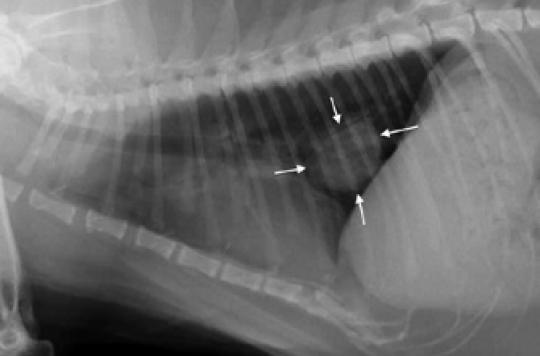Inserm researchers have succeeded in diagnosing lung cancer, years before it is visible on a scanner, and thanks to a blood test. Is it really revolutionary?

It is a discovery sometimes described as “revolutionary”, sometimes as “extraordinary”. An Inserm team has found a way to detect the early signs of cancer cancer, years before it manifests itself clinically. But as encouraging as they are, these results, published in the journal Plos One, need to be qualified.
Cancer precursor cells
Until now, lung cancer could only be detected by medical imaging. Problem: At this point, it is usually too late. Without early detection, the prognosis is of the order of a few months …
>> Consult our sheet on Lung cancer
The team of scientists studied a cohort of 245 people at risk of developing cancer. Some were very heavy smokers; others (168 subjects) had COPD (Chronic Obstructive Pulmonary Disease), the primary cause of which is smoking. Objective: to detect if cancer cells were circulating in their blood.
Cancer cells are present in the blood from the very first stages of the formation of invasive tumors, and even before they are visible on a CT scan. However, traditional tests fail to identify them. “These cells are very rare – 2 or 3 per 50 billion cells, or 10 mL of blood,” explains Prof. Paul Hofman, who led the study. In addition, these cells are heterogeneous and fragile, and therefore very difficult to extract without bias or loss.
Filter the blood like in a coffee machine
To successfully isolate these cells, the researchers used an innovative blood test, the result of long research carried out in France. Today, it is the company Rarecells which markets it within the framework of the research, for the sum of 65,000 euros. It makes it possible, in fact, to effectively isolate these circulating tumor cells by retaining them on the surface of a filter.
Listen to Prof. Paul Hofman, researcher at Inserm : ” The test works like a coffee machine where the blood is filtered with positive pressure “.
Cancer eradicated?
Among the cohort, five people had circulating cancer cells detected through the test, even though imaging did not reveal any tumors. These people were followed regularly. Very small tumors (nodules) began to form after two years, on average, after the blood test (between 1 year and 4 years depending on the subject). Analysis of these nodules confirmed the diagnosis of lung cancer.
Immediately, the doctors therefore operated on the patients, with unexpected success. In fact, one year after the operation, none showed any sign of recurrence… This suggests that in these people, the cancer has been definitively eradicated. In addition, subjects who tested negative for cancer cells did not develop a nodule afterwards.
Of course, it will take a few more years of follow-up to rule out the risk of recurrence. But the study’s authors are enthusiastic. “The detection of cancer cells via this blood test could play a key role in the precocity of the surgical intervention, thus making it possible to aim for the early eradication of the primary location of the cancer”, they write.
A problematic technique
In fact, the technique is not brand new. This tumor cell filter has been used for several years for cancer cases already diagnosed. “The more cells there are in these patients, the greater the risk of metastasis,” explains Paul Hofman. The test thus makes it possible to evaluate the effectiveness of the treatments administered, to better target care and to avoid invasive therapies.
Finally, the real originality of this study consists in having applied this test to patients at risk whose cancer has not yet been clinically diagnosed. And this is not without asking a number of questions, as many oncologists point out.
“What to do when you discover a few cancerous cells, and the CT scan is normal? asks Philippe Delaval, pulmonologist at Rennes University Hospital. What do we say to patients? Especially since we do not necessarily know where the cancer comes from, what organ … So what examinations to offer patients, and at what pace? And then, we must not forget the stress, if not the anguish, generated by this discovery in a given patient, and which will have to be managed… ”
An incomplete discovery
In fact, while we have a test to detect circulating tumor cells, we do not yet have a reliable method of knowing where they come from. And this is the whole limit of this discovery.
Moreover, on the side of RareCells, we insist on this point. “Basically, the test is not marketed for early diagnosis,” explains Patrizia Paterlini-Bréchot, Inserm researcher and founder of the company that sells the device. Further studies will be necessary so that it can truly be presented as a screening technique ”. And it may take several more years.
Listen to Patrizia Paterlini-Bréchot, researcher at Inserm and founder of the company RareCells : “On the one hand, larger, multicenter studies will be set up. On the other hand, we are going to develop a test to detect the origin of tumor cells ”
Cancer eradication is not for tomorrow. Especially since, according to practitioners, these studies arouse such enthusiasm that we tend to obscure the essential. Note that to avoid cancer, it is better to rely on a healthy lifestyle than on a screening test …
.















